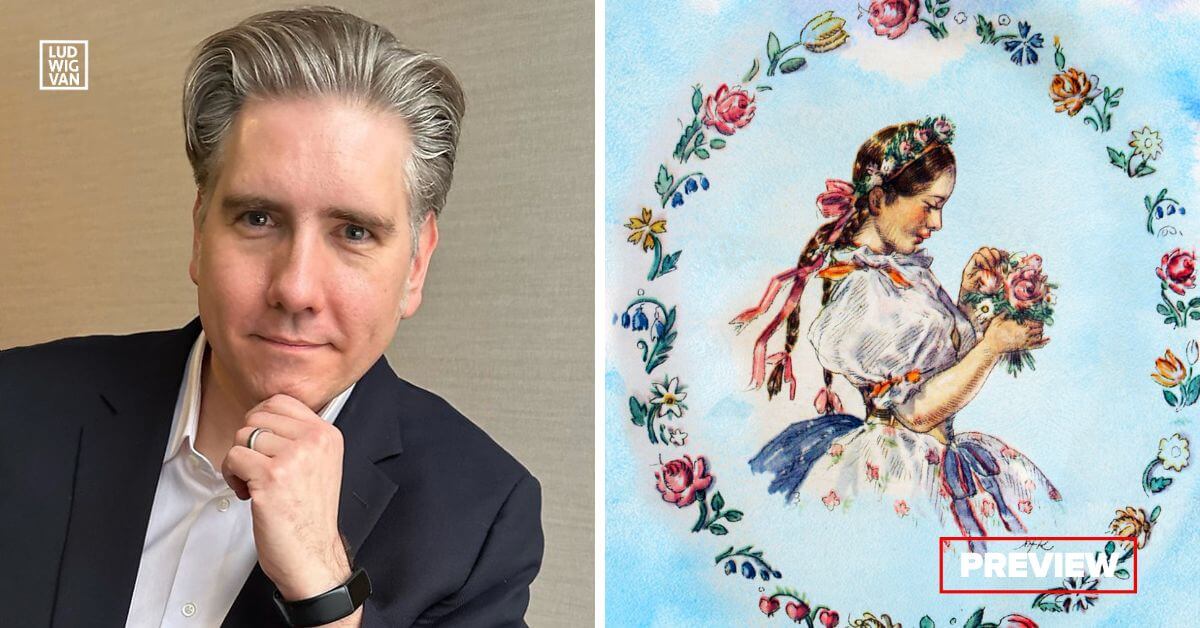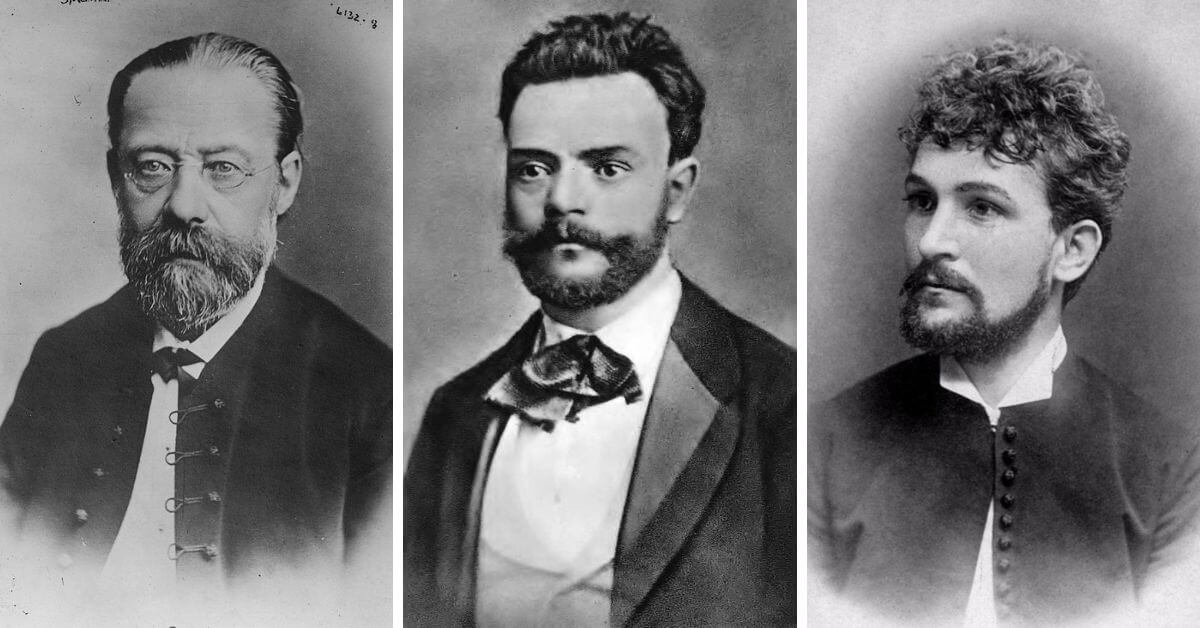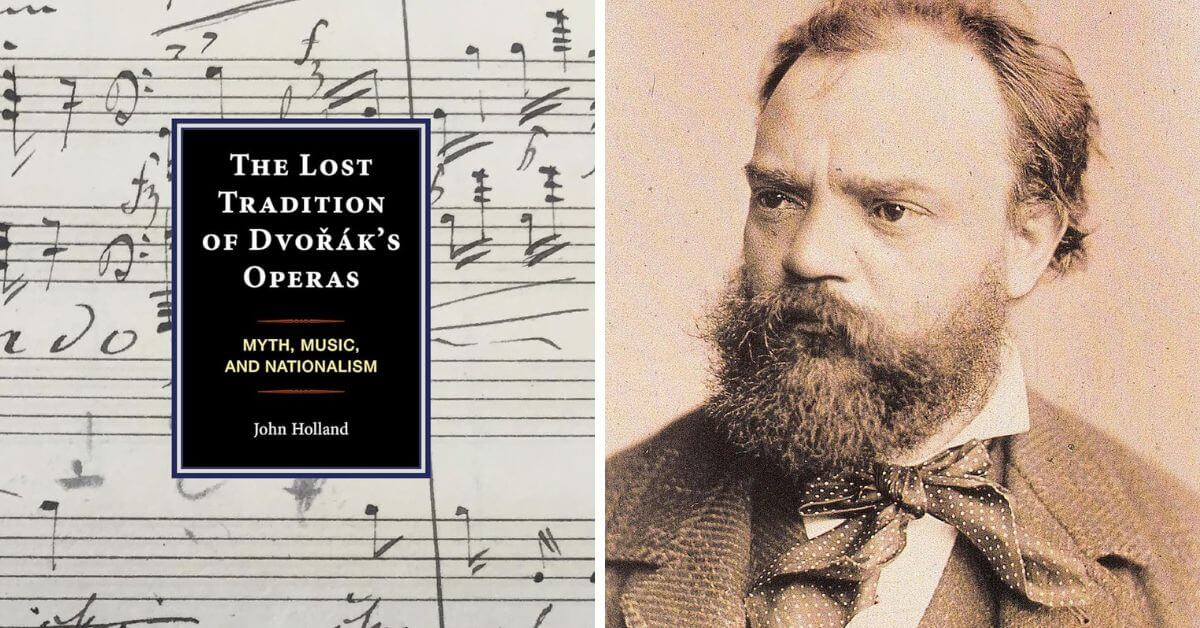
The tradition of celebrating the Year of Czech Music began exactly one hundred years ago in 1924 with the centenary of the birth of composer Bedřich Smetana. It’s been celebrated many times since then, but 2024 coincides with the 200th year anniversary of the composer’s birthday, giving the occasion added weight.
It will be celebrated in Toronto with a festival of three rarely-heard operas organized by John Holland and the Canadian Institute for Czech Music, of which he is the Founder and President, together with Opera by Request.
Both musicologist and opera singer, Dr. John Holland founded the C.I.C.M. in 2013 with the goal of promoting Czech music, which, due to historical and political forces, has not generally seen the kind of exposure and appreciation of its Western European counterparts.
The Year of Czech Music Opera Fest
The festival consists of three staged operas through 2024, presented together with Opera By Request.
Smetana: Prodaná Nevěsta (The Bartered Bride)
Saturday, March 9, 2024 | Victoria College Chapel
The best known of Smetana’s operas, and considered an important milestone in Czech music, the comedy was composed with a libretto by Karel Sabina. It was first performed in Prague in 1866, but was not much of a success at first. After revisions, it was reintroduced in 1870, and its popularity grew from that moment forward. It was part of Smetana’s goal of creating a truly Czech version of opera. His score incorporates many elements of Czech folkloric music, including polkas and other dances, without directly referencing folk songs.
The story is set in a village, and focuses on the attempts to marry off Mařenka, a village girl. Her parents use the services of the village marriage broker, while she pines after young Jeník. The villagers add their two cents, a traveling circus throws a monkey wrench into the works — can true love prevail?
Janáček: Věc Makropulos (The Makropulos Affair)
Saturday, May 7, 2024 | College Street United Church
Based on the play of the same name by Karel Čapek, the opera in three acts was composed between 1923 and 1925. The story begins with a legal case that’s been brewing for a nearly 100 years. The main character is Emilia Marty, an opera singer, (or Elina Makropulos, as we later learn…) who’s scheming to retrieve a mysterious document hidden within the legal briefs…
It was performed a few times in Prague and Germany during the latter 1920s, but didn’t gain in popularity until a London production revival in 1964. It was first performed in the US in 1966, and not in the original Czech language until 1998. It has still only been presented a handful of times on this side of the Atlantic.
Dvořák: Jakobín (The Jacobin)
Friday, October 25, 2024 | Trinity-St. Paul’s United Church
The original libretto in Czech was written by by Marie Červinková-Riegrová, using characters from writer Alois Jirásek’s story At the Ducal Court, but in an original plot. The Jacobin is a pastoral comedic opera in three acts that premiered in 1889. After revisions by both composer and librettist, it premiered for a second time in 1898.
The romantic comedy revolves around Bohuš, son of Count Vilém of Harasov, who returns home estranged from his eccentric father, and the romantic misadventures of the townsfolk. The character of schoolmaster and choirmaster Benda, and his daughter Terinka, are central to the story.
- Tickets are available for Smetana’s The Bartered Bride now [HERE].

Dr. John Holland: The Interview
“It’s kind of an interesting thing with Czech culture,” Holland notes. “Music is really important to Czech culture.”
Czech Opera
While the music of Czechoslovakia is not nearly as well known in North America as that of Germany, Italy, France, or other Western European nations, that was not always the case. During the 19th and early 20th century, the Prague Conservatory was one of the major centres for European music.
Mozart himself had a great affinity for the city and its people, as Holland points out.
From its birth, Czech opera composers set out to create work that was distinct from their many prominent neighbour nations.
“One of the things that Czech opera is known for is the inclusion of folk melodies and folklore,” he points out. Smetana and Dvořák made it part of their musical mandate, in fact. Combining the high art of opera with folk elements created a unique voice for Czech opera.
“The Bartered Bride is the kind of the quintessential Czech opera,” John explains. The rural setting, a chorus singing of the virtues of beer — the details are specific to Czech society. The marriage broker is a key facet of traditional village life. He points out that, when the opera was first performed in Germany, the audiences couldn’t grasp the story, since that role doesn’t exist outside a Czech village.
Dvořák’s Jakobín uses a similar approach to the story. “It’s the same thing. It’s based in a Czech village, it’s got stock Czech characters.”
That includes the quintessential Czech schoolmaster, the Musikant, who combined the roles of school teacher, church musician, and music teacher. He embodied the village’s centre of music. The composer took his own village music teacher as inspiration, and in fact named the character of Terinka after his teacher’s real life daughter.
“It’s an homage to his music teacher.”
The story for The Makropulos Affair is the exception, not rooted in folklore, but instead in the machinations of the Austro-Hungarian empire. “It’s more of a modern story,” Holland says. “The story is a bit quirky. I don’t want to give too much away,” he adds. “It’s a very interesting story. It’s like a whodunit, in a way.”
The plot may be more modern in conception, but Janáček’s score also incorporates folkloric elements, without quoting directly from folk music.
The three composers knew each other, and shared a love of country. Holland mentions a lineage of continuity in Czech music.
The Festival
“The festival is something that came out of my PhD work, which is on Czech opera,” explains Holland. The timing, of course, was serendipitous. “I kind of wanted to time it with the year of Czech music.” The convergence with the publication of his book was an added bonus.
Just prior to the festival’s first performance on March 8, he’ll also be performing a recital titled The Voices of Prague with frequent collaborator, soprano Grace Quinsey. Along with the music of Czech composers, it includes music by Mozart, who premiered his Don Giovanni in Prague.
The Jacobin had its Toronto premiere in 2014 at the last version of the CICM’s Year of Czech Music, presented in conjunction with Opera by Request. Holland recalls the audience including a sizable quotient of Czech expats, some of whom told him emotionally that they’d never expected to hear the music performed live again.
Many Czech immigrants, like Holland’s parents, came to Canada to escape the communist regime. “They came to this country with very little.”
The reaction was so strong, he decided to bring The Jacobin back for the 2024 version. He calls The Jacobin Dvořák’s best opera. “It’s this perfect amalgamation of folk music, late Romantic music, and [Verdi-esque] opera.” Despite its overall popularity, he points out that The Bartered Bride hasn’t been performed in Canada in decades.
Strong Women
The characters in Czech opera are different than many in the usual Italian/German/Austrian repertoire. “This is something that’s also inherent in Czech culture,” Holland notes. “Women are, more often than not, the dominant gender.” He points out that both Smetana and Dvořák worked with women librettists, who were considered equals within the artistic community of the day.
“One thing that comes across in these operas is that the women are very strong.” In both The Jacobin and the Makropolis Affair, the main character is an intelligent woman who can outwit those around her. In The Bartered Bride, it’s a woman who comes to decide for herself. “It’s nice to have three operas that feature very strong women.”

Dr. John Holland — The Lost Tradition of Dvořák’s Operas: Myth, Music, and Nationalism
Holland’s book, which was released in September 2023, also came out of his PhD research at York University. Published by Lexington books, the manuscript evolved as did his own research and music practice.
As a student, John recalls his grandfather harassing him about the fact that he never sang in Czech. As a bass baritone, when showing up to auditions, he found that the vast majority of singers drew from the same narrow repertoire. “Everyone sings the same things,” he notes. “What can I bring that’s distinct and different?”
He began to rehearse and audition with arias by Dvořák, and reports that it garnered notice. At times, experienced adjudicators didn’t know what he was singing.
The fate of Dvořák’s operas was particularly cruel. While popular in his day, as part of the Austro-Hungarian empire, the pressure was on to convert to German language librettos. During WWII, after his death, anything written in the Czech language was suppressed. Following the communist takeover, Dvořák’s work was again ignored and suppressed in his own country. Holland says that, to this day, only three of his operas have ever been performed in Czechoslovakia.
The treasure trove of rarely performed operas his research uncovered is what led to both his PhD and the book. He relates finding scores in Prague that were covered in dust, and had not been viewed in decades.
“He was faced with bias and suppression in his own country.” What he discovered led to his mission. “There needs to be more awareness.”
As he points out, programmers and presenters depend on familiar repertoire to sell tickets. If Dvořák’s operas remain poorly known, and the scores are unavailable, they will continue to languish on unseen shelves. It requires more people, especially young singers, to take a chance on learning them and exposing them via auditions and recitals.
“I’m in possession of the only set of Dvořák’s complete operas in Canada,” Holland notes. That’s definitely something he’d like to change. “I’m really hoping these productions bring increased awareness.”
Are you looking to promote an event? Have a news tip? Need to know the best events happening this weekend? Send us a note.
#LUDWIGVAN
Get the daily arts news straight to your inbox.
Sign up for the Ludwig Van Toronto e-Blast! — local classical music and opera news straight to your inbox HERE.
- PREVIEW | SUMMER OPERA LYRIC THEATRE Presents Handel’s Xerxes, Mozart’s Idomeneo & Puccini’a La Boheme July 26 To August 4 - July 26, 2024
- PREVIEW | YENSA Festival V.2 Offers Black Flames Performances & Other Ways To Celebrate Black Women In Dance - July 25, 2024
- PREVIEW | Canadian Talent Conspicuous In The Met: Live In HD 2024-25 Season - July 25, 2024



